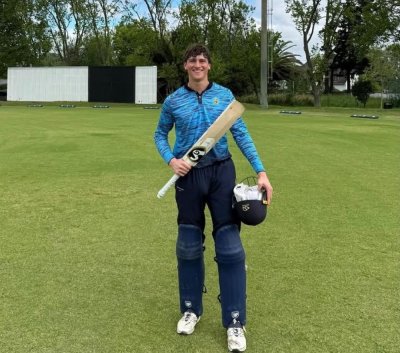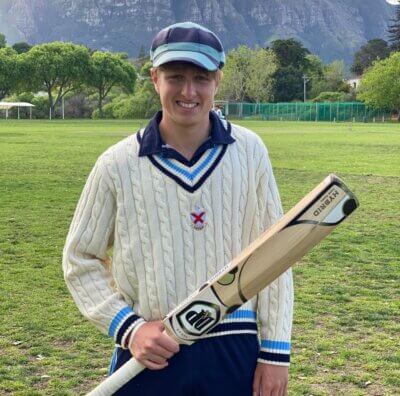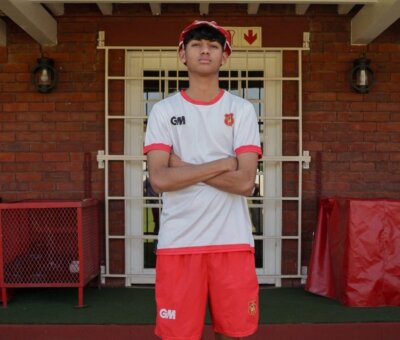Graeme College embraces science to improve performance
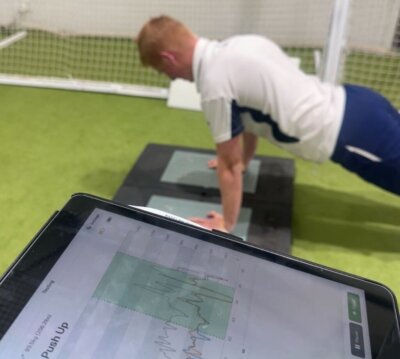
Graeme College is determined to establish itself as one of the leading cricket-playing schools in the country. Towards this goal, they have partnered with the Human Kinetics and Ergonomics Department (HKE).
The HKE is assisting Graeme College to enhance player development through scientific testing.
The institution has been on a steep development curve over the last few years. They had six players in the title-winning Eastern Province u16A team at the National Week last year, and they also made it to the finals of the inaugural Schools SA20. They hope to go all the way and clinch the title this season.
“We are excited about this partnership; the HKE is designing personalised programmes for our boys based on their body physique and composition,” Odwa Xonxa, the Graeme College coach, told SuperSport Schools Plus.
The programme, which has been running for three weeks, is assisting Graeme College’s players to develop better athleticism, balance and body literacy, which will in turn help with performance on the cricket field. According to Xonxa, this will help to bridge the gap between the school system and professional sport.
The collaboration was realised after Xonxa had approached the HKE with a vision for a programme that would ensure that every boy, one day, left Graeme College knowing that the school cared about them and their physical development.
“It was an obvious space for collaboration between us and the school,” Andrew Todd, from Rhodes University’s HKE department, said.
“For a start, we identified the cricket programme as a sensible launch pad from which our students could provide high-performance and strength and conditioning support to the high-performing cricketers.”
According to Todd, his team conducted baseline motor fitness assessments, focusing on power, flexibility, strength, balance and agility—key components of cricket performance. They tested players using countermovement jumps, centre of pressure and plyometric push-ups.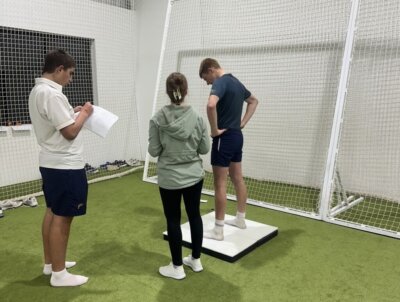
“The tests helped players to gain insights into their physical capabilities. The data that we collect enables us to customise their training programmes to better suit their individual profiles and performance goals,” Todd said.
For batters, a major area of work focuses on balance, their ability to shift weight from the front to back foot effectively and efficiently, while for fast bowlers, the HKE is deploying strengthening programmes to support them.
“We use force plate technologies to identify asymmetries and key areas to focus on for each player and will use this to track the efficacy of the programmes implemented, for example, through tracking counter movement jump characteristics,” Todd explained.
While the programme will help batters and bowlers improve their skills, it does not end there.
Todd’s team will also focus on other aspects of performance enhancement, including balancing training load with recovery. His team will work with the cricketers to understand their sleeping patterns and why adequate sleep is vital for recovery post-performance. This side of the programme will receive guidance from Prof. Jono Davy, a leading expert in sleep and performance.
“The exercises will be embedded into the training routines of the cricketers through collaborating with the coaches so that the programme becomes self-sustaining in the future,” Todd said.
The programme will run for the rest of the 2025 academic calendar. However, Graeme College and HKE’s goal is to create a sustainable relationship that continues to build on the blocks put in place each year. This will result in a mutually beneficial relationship between the school and the department.




